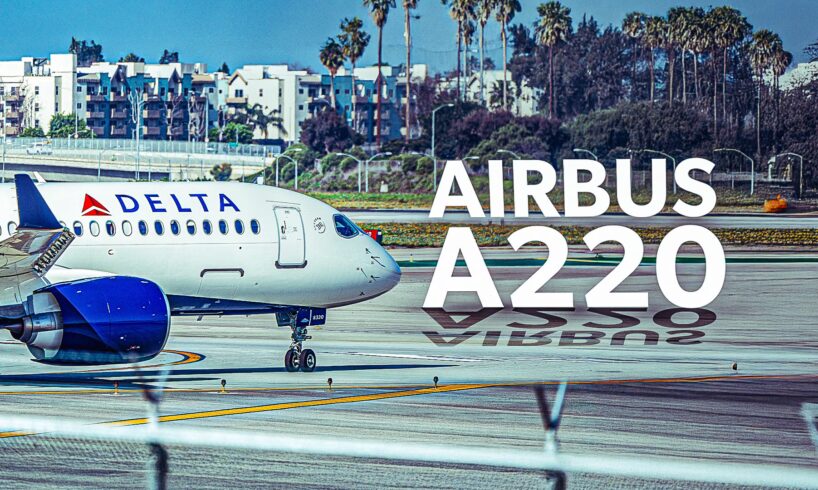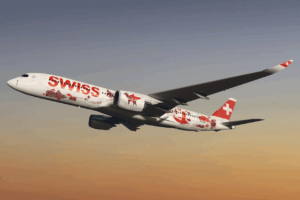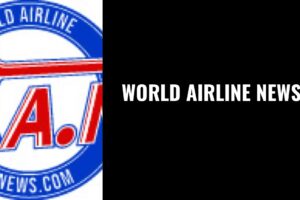
A Delta Air Lines Airbus A220, which was operating Delta Air Lines Flight 3248 from Pittsburgh International Airport (PIT) to Salt Lake City (SLC), ultimately suffered from an inadvertent emergency exit slide deployment while at Pittsburgh’s Gate D2. The incident occurred on the morning of October 26, 2025. The door in question was the first door on the left side of the aircraft, and the door was opened while still armed, something which resulted in the evacuation slide blowing onto the ramp.
Passengers quickly deplaned on a jetbridge, and the process of removing the slide took around an hour. The flight departed four hours late as a result (around 9:11 PM local time), and it led to extensive missed connections in Salt Lake City, which left some passengers stranded overnight. Cost estimates ranged from $20,000 for the repacking and repairing of the slide to more than six figures when all direct and indirect costs were accounted for.
What Exactly Happened?
This incident appears to be a classic example of an armed door being opened from the inside after the “arm doors for departure” call was made by the pilot. While the arming lever was engaged, the door was cracked from the inside, and this resulted in the automatic inflation of the emergency slide. This is traditionally what emergency exit doors are designed for. Airbus A220 doors automatically disarm only when opened from the outside, and opening from the inside while armed typically leads to the deployment of the emergency chute.
This small error had far-reaching consequences for the airline. According to reports published about the incident from View From The Wing, the reported four-hour delay aligns nicely with typical timelines for maintenance coordination and overall documentation. Long-term cost drivers include slide packaging and downstream aircraft rotation challenges. This pushed the overall total expense into the six figures at the very least.
What Does All Of This Mean For Delta Air Lines?
For Delta Air Lines, the incident is relatively small in scale, but it sends a poor signal to customers. First, it is a controllable reliability failure that dented the day-of operational performance. It generates high customer care costs that stem from the error itself. It also highlights human-driven risk factors surrounding door arming and disarming workflows, especially on fleets where inside-open behavior becomes so unforgiving. Passengers can expect an immediate safety stand-down or overall refresher training that emphasizes cross-checks and arming discipline.
This incident was fundamentally caused by a lack of arming discipline. Slide events carry brand risk, especially in the era of social media, where passenger horror stories can be shared very quickly. The goodwill gestures required to combat this reputational risk come along with high costs. This kind of one-off expense will not move quarterly numbers. However, repeating these kinds of events could certainly erode Delta’s premium-reliability narrative.
At the end of the day, the risk for Delta Air Lines is less financial. The carrier can easily absorb the relatively small increase in operational costs that this particular door-triggering incident might bring along. The bigger question for the airline is whether the reputational risk could have further-reaching consequences.
What Are Our Principal Takeaways?
This incident also highlights the intense nature of serving as a member of an airline cabin crew. One small error of this kind can have far-reaching operational implications for an airline and can immediately interrupt the travel days of hundreds of passengers. These kinds of incidents can also have serious safety implications.
It is critical for cabin crew members to maintain continued awareness of door-arming status, as well as where the aircraft might be on the runway. A lack of this kind of discipline can result in the kinds of incidents that we observed yesterday.
Ultimately, no one was seriously hurt as a result of the incident, something which most industry analysts who observed this incident will be quick to highlight. Nevertheless, the incident does require some reflection, and an adequate post-mortem will help ensure this incident does not happen again.






